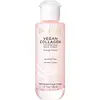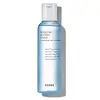What's inside
What's inside
 Key Ingredients
Key Ingredients

 Benefits
Benefits

 Concerns
Concerns

No concerns
 Ingredients Side-by-side
Ingredients Side-by-side

Water
Skin ConditioningGlyceryl Stearate Se
EmulsifyingPropanediol
SolventSr-Hydrozoan Polypeptide-1
HumectantChamomilla Recutita Flower Extract
MaskingCitrus Aurantium Dulcis Flower Extract
Skin ConditioningJasminum Officinale Flower Extract
MaskingLeuconostoc/Radish Root Ferment Filtrate
AntimicrobialSodium Hyaluronate
HumectantArnica Montana Flower Extract
MaskingHydrolyzed Jojoba Esters
Skin ConditioningPullulan
Sclerotium Gum
Emulsion StabilisingXanthan Gum
EmulsifyingLecithin
EmollientSilica
AbrasiveGlycerin
HumectantPolysorbate 20
EmulsifyingMaltodextrin
AbsorbentPhenoxyethanol
PreservativeEthylhexylglycerin
Skin ConditioningParfum
MaskingWater, Glyceryl Stearate Se, Propanediol, Sr-Hydrozoan Polypeptide-1, Chamomilla Recutita Flower Extract, Citrus Aurantium Dulcis Flower Extract, Jasminum Officinale Flower Extract, Leuconostoc/Radish Root Ferment Filtrate, Sodium Hyaluronate, Arnica Montana Flower Extract, Hydrolyzed Jojoba Esters, Pullulan, Sclerotium Gum, Xanthan Gum, Lecithin, Silica, Glycerin, Polysorbate 20, Maltodextrin, Phenoxyethanol, Ethylhexylglycerin, Parfum
 Reviews
Reviews

Ingredients Explained
These ingredients are found in both products.
Ingredients higher up in an ingredient list are typically present in a larger amount.
Ethylhexylglycerin (we can't pronounce this either) is commonly used as a preservative and skin softener. It is derived from glyceryl.
You might see Ethylhexylglycerin often paired with other preservatives such as phenoxyethanol. Ethylhexylglycerin has been found to increase the effectiveness of these other preservatives.
Glycerin is already naturally found in your skin. It helps moisturize and protect your skin.
A study from 2016 found glycerin to be more effective as a humectant than AHAs and hyaluronic acid.
As a humectant, it helps the skin stay hydrated by pulling moisture to your skin. The low molecular weight of glycerin allows it to pull moisture into the deeper layers of your skin.
Hydrated skin improves your skin barrier; Your skin barrier helps protect against irritants and bacteria.
Glycerin has also been found to have antimicrobial and antiviral properties. Due to these properties, glycerin is often used in wound and burn treatments.
In cosmetics, glycerin is usually derived from plants such as soybean or palm. However, it can also be sourced from animals, such as tallow or animal fat.
This ingredient is organic, colorless, odorless, and non-toxic.
Glycerin is the name for this ingredient in American English. British English uses Glycerol/Glycerine.
Learn more about GlycerinSodium Hyaluronate is hyaluronic acid's salt form. It is commonly derived from the sodium salt of hyaluronic acid.
Like hyaluronic acid, it is great at holding water and acts as a humectant. This makes it a great skin hydrating ingredient.
Sodium Hyaluronate is naturally occurring in our bodies and is mostly found in eye fluid and joints.
These are some other common types of Hyaluronic Acid:
Learn more about Sodium HyaluronateWater. It's the most common cosmetic ingredient of all. You'll usually see it at the top of ingredient lists, meaning that it makes up the largest part of the product.
So why is it so popular? Water most often acts as a solvent - this means that it helps dissolve other ingredients into the formulation.
You'll also recognize water as that liquid we all need to stay alive. If you see this, drink a glass of water. Stay hydrated!
Learn more about Water